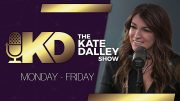The mainstream media have rejoiced because they perceive that President Donald Trump has abandoned policies and changed long-held positions that they have considered anathema. Politico said the president has “demonstrated an incredible willingness to bend his past positions, or abandon them entirely. Sometimes he offers an explanation; sometimes not.” CNN called them “stunning U-turns on key issues” reflecting “extraordinary political shape-shifting.”
The “key issues” are Syria, Janet Yellen of the Federal Reserve, NAFTA, NATO, his hiring freeze, China’s currency manipulation, and the Export-Import Bank.
Syria tops the list currently as the president, who promised to keep the United States out of protracted conflicts in the Middle East, has instead deepened its military involvement with a barrage of missile strikes on a Syrian airbase in retaliation for a poison gas attack on civilians.
The problem is that, back in 2013, after Syrian President Bashar al-Assad was accused of using sarin gas against his own countrymen, private citizen Trump tweeted on August 29, “What will we get for bombing Syria besides more debt and a possible long term conflict? Obama needs Congressional approval.” On September 5 Trump tweeted again, “Obama’s war in Syria has the potential to widen into a worldwide conflict.” Seven days later he tweeted, “We should … stay out of Syria and other countries that hate us.”
He also spent months during his president campaign condemning Hillary Clinton for her intentions to escalate U.S. military aggression in the Middle East — in particular Syria — all the while assuring the American people that if he were elected president he would not use increased military force there, or anywhere else. As Pastor Chuck Baldwin noted: “It took [Trump] exactly 77 days after being inaugurated to launch 59 Tomahawk missiles into, guess where? Syria! And guess what the pretext was for this military attack? You guessed it: Assad used a chemical attack against his own people. What was it that Yogi Berra said?” [“It’s déjà vu all over again.”]
Trump’s problem is not ignorance of what the Constitution says about the executive unilaterally ordering an act of war. He most certainly knew then, and knows now, that the Constitution requires congressional approval. But he went ahead anyway.
Next came Trump’s apparent reversal of his position in his last campaign ad, which depicted Janet Yellen, head of the Federal Reserve, as a member of a shadowy, globalist cabal “who control the levers of power in Washington.”
That was then; this is now. In an interview with the Wall Street Journal on Wednesday, Trump said that he now “respects” the head of the central bank and added that he might not keep his campaign pledge to replace her when her term is up in 2018. He added that he likes her low-interest rate policy, which he excoriated during his campaign as a policy dreadfully hurtful to savers.
Naturally, nothing was said in the interview about whether the Federal Reserve System is even mentioned in the Constitution or whether its creation in 1913 was legal.
As far as NAFTA is concerned, Trump apparently has greatly softened his stance. During a debate with Clinton last September he stated, “NAFTA is the worst trade deal maybe ever signed anywhere, but certainly ever signed in this country.” He went on to promise that, if elected, he would drastically change NAFTA or even scrap it altogether if he didn’t get what he wanted.
But a draft proposal from the White House that has been circulating in Congress recently expresses a much different point of view. As VOX reported:
The draft proposal sounds strikingly sunny about the importance of free trade with the US’s NAFTA trading partners, Canada and Mexico, acknowledging their “shared interests” and “common values.” It contains plenty of fairly conventional language on market access and reducing trade barriers that accompany typical letters of this kind. And while there are a number of provisions that Canada and Mexico are likely to object to, there’s a noticeable absence of the kinds of protectionist proposals that would have guaranteed the accord went down in flames.
“[These positions] could be the beginning of a negotiation that Canada and Mexico would be willing to participate in,” Chris Wilson, deputy director of the Mexico Institute at the Wilson Center, told VOX. “It definitely signaled the US goal would be to update NAFTA and improve it — not to blow up NAFTA.”
Although the president appears to be willing to back away from his previous threats, he does at least recognize that he could do nothing about NAFTA either way without congressional approval.
The administration allowed the hiring freeze the president ordered his first full day in office to expire on Wednesday, with many in the mainstream media casting it as another reversal in policy by the White House. That’s too simple a claim, as The New American took pains to point out. Cuts to federal staffing are coming, but they will be strategic and in accordance with plans each agency is making on its own to become more efficient without increasing its staff. All of which is well within constitutional powers granted to the executive.
Next on the list is China and Trump’s willingness to get chummy with the communist dictator “Paramount Leader” Xi Jinping. He told the Journal that “President Xi wants to do the right thing. We had a very good bonding. I think we had a very good chemistry together. I think he wants to help us with [the threat from] North Korea. We talked trade. We talked [about] a lot of things.”
During his campaign Trump decried China’s willingness to suppress the value of the Chinese currency in order to make its exports more competitive with American goods. He likened the process to “raping” the United States, and promised that on his first day in office he would formally charge China as a “currency manipulator.” During his interview with the Journal on Wednesday, however, Trump reversed himself, putting the blame for a strong dollar versus a weak yuan on himself: “I think our dollar is getting too strong, and partially that’s my fault because people have confidence in me.” He added that it is “very, very hard to compete when you have a strong dollar and other countries are devaluing their currencies.” He added that, following his conversation with Xi, “They’re not currency manipulators” after all.
This may be the pragmatic side of Trump coming through, trying to get friendly with an enemy in order to leverage pressure on another enemy. Missing from Trump’s comments was mention that any treaties struck would have to be approved by the Congress as provided under the Constitution.
In another reversal following a meeting with NATO Secretary General Jens Stoltenberg on Wednesday, Trump told the press: “The Secretary General and I had a productive discussion about what more NATO can do in the fight against terrorism. I complained about that a long time ago and they made a change, and now they do fight terrorism. I said [earlier] that it was obsolete. It’s no longer obsolete.”
This change of heart was no doubt helped along by advice from Secretary of State Rex Tillerson as a result of confirmation of the Kremlin’s continued support of Syria’s Assad. But any reference to President George Washington’s warning about foreign entanglements (“It is our true policy to steer clear of permanent alliances with any portion of the foreign world…”) was apparently missing from those conversations.
Finally came Trump’s reversal on the Export-Import (Ex-Im) Bank. On the campaign trail, he got great mileage out of his declaimers against it as “featherbedding” for politicians and huge companies that didn’t need its help. His reversal was startling: “Instinctively, you would say, ‘Isn’t [providing taxpayer-guaranteed funding for corporations who could do it on their own] a ridiculous thing? But actually, it’s a very good thing. And [Ex-Im] actually makes money.… It could make a lot of money.”
But, as John McManus, president emeritus of The John Birch Society, asked back in 2015, “If these deals are profitable, why is a government-run bank needed? Wouldn’t private banks be willing to provide the cash?” And then McManus returned to the primary issue: the constitutional position on such agencies:
Hardly anyone wants to ask where in the U.S. Constitution an entity such as the Ex-Im Bank derives its authorization. As is the case with so many other federal agencies and departments there is none.
That’s the ultimate issue. Trump is the complete pragmatist, making decisions that appear at the moment to be expedient and in the country’s best interests, at least from his (and his advisors’) point of view. Under a constitutional Republic, however, pragmatism must mesh with constitutional authority in order to ensure that the best interests of the Republic are actually being served.
Photo of Trump being sworn in: Official White House Facebook page
An Ivy League graduate and former investment advisor, Bob is a regular contributor to The New American magazine and blogs frequently at LightFromTheRight.com, primarily on economics and politics. He can be reached at [email protected].
Related articles:




